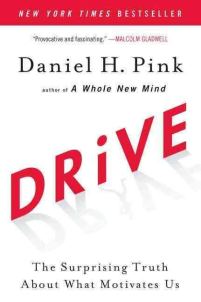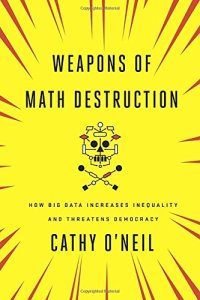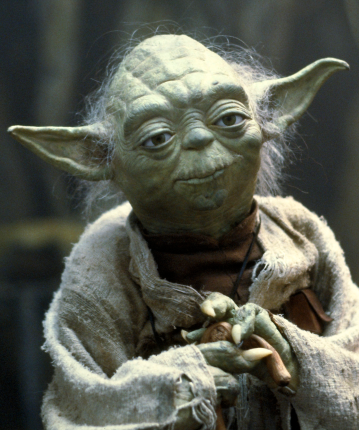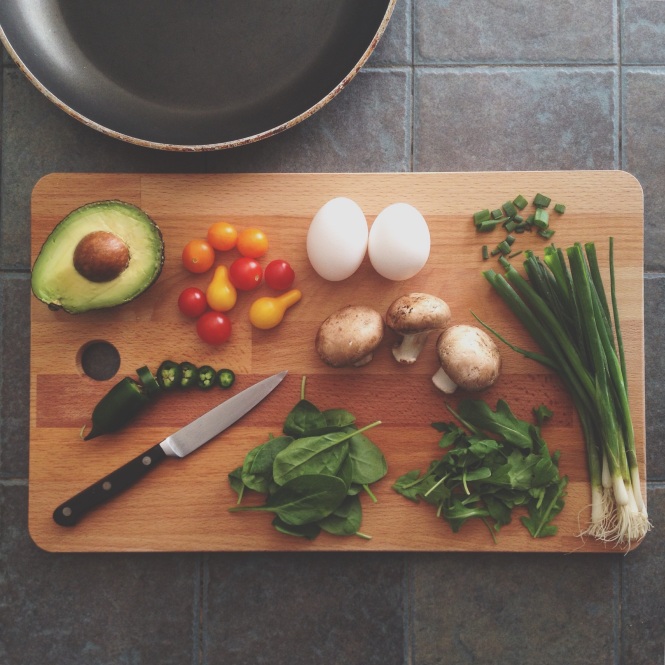A woman with depression explains what no one tells you when they tell you to practice “self-care.”
Source: Self-Care: How to Take Care of Yourself When You Have Depression | The Mighty
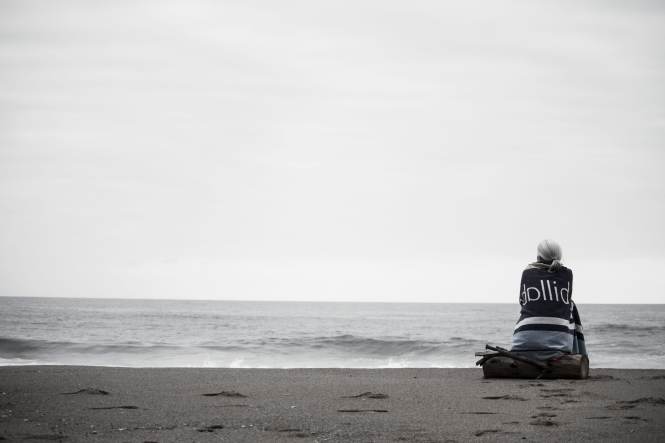
In social work, “self-care” is one of those terms that is so overused, it has ceased to mean anything. Typically when self-care is referenced, the speaker is referring to activities and experiences that bring you pleasure. “The work in this field is really tough. You have to practice self-care. Go to a yoga class. Take a walk on a sunny day. Protect your leisure time. Get a mani-pedi. Soak in a bubble bath. Treat yo’self.”
Pleasure is great, and it is important. During seasons when I am depressed, I force myself to indulge in pleasure as though it were a lifeline, because it is. Most likely, there is actual theory and clinical principles behind this, but I’m no clinician, so I can’t speak to that. Here’s my interpretation: feeling bad all day, every day, is exhausting. It’s not good for your body, or your heart, or your psyche. So when I reach day 3 of feeling sad and terrible, I force-feed myself pleasure, even though depression sucks all desire for fun and pleasure out of you. For me it feels similar to the way you might force yourself to eat a salad because you know it’s good for you, even though you may fucking hate eating salads. (I am doing that right now, by the way – eating a fucking salad. It is picture perfect, with local lettuce and beets, tomatoes, dried cranberries, with a lemon-balsamic vinaigrette. I hate it. I’m eating it anyway.)
I thought I was doing this self-care thing the right way until November when it became obvious I was not. Yes, sometimes self-care looks like pleasurable activities, and in such cases, it is not so hard for me to get myself to do it. But if that were all that self-care entailed, I would not have found myself in the place I am in. I’ve been doing that kind of self-care for years with insufficient gains, so this leads me to believe my self-care regimen was incomplete.
What social workers and other people don’t often tell you is that self-care can be completely terrible.Self-care includes a lot of adult-ing, and activities you want to put off indefinitely. Self-care sometimes means making tough decisions which you fear others will judge. Self-care involves asking for help; it involves vulnerability; it involves being painfully honest with yourself and your loved ones about what you need.
I am reconstructing my ideas about what it means to take radically good care of myself. I am making it a priority, to the detriment of other priorities, because I have to come the realization that my life depends on it. I will tell the truth about my present self-care, even though I have zero assurances I am getting it right. Because a) getting it right is not the point (but God, do I love to get things right), and b) the other thing nobody tells you about self-care is that it’s nearly impossible to know if you’re doing it right, until months later when you either find yourself feeling better or shittier. Check in with me in June for an addendum.
TAKE CARE OF YOUR BODY.
Medical self-care is completely unglamorous. Is there anyone on the planet who enjoys going to the dentist? If I go to the dentist once every three years, I’m doing really well. Self-care is paper-gowned, bare-assed vulnerability, as you do the un-fun work of showing up for your Pap smear, mammogram, or enema. Medical self-care is particularly difficult for me when I am depressed and anxious. The depressive part of my brain doesn’t care if I’m sick because it can’t care about anything. The anxious part of my brain doesn’t want to make the doctor’s appointment because what if something is wrong, and what if the nurse is mean, and what if the doctor commits a microaggression, and what if I have to go to doctor’s appointments by myself for the rest of my life because I never find a partner? I’m almost 30, and I can no longer indulge the myth that I am invincible and I will never have physical health issues. Right now, self-care means getting the medical care I need, even if it is difficult and scary for me to accept I am a person who sometimes needs medical care.
QUIT.
In the past year, I have just been quitting shit left and right. Marathons. Jobs. Pet ownership. I hate quitting so much, I can’t even tell you. For a Type-A perfectionist who has always based my self-worth in my accomplishments and being perceived as a capable, self-reliant person, admitting I’m not well enough to do something, like work a full time job, is one of the most painful realities I can imagine. People talk about setting boundaries and avoiding over commitment as though it’s fun. That shit ain’t fun. It is not fun to sit in the office of your work supervisor and explain why you keep calling out sick. It is even less fun to finally suck it up and leave a job because you’re not well enough to work full time, even if you think you ought to be. Even if I have been before, I am not now, and self-care means being honest with myself and other people about that.
The painful self-care I am doing now is coming to terms with the fact that I have built my life around performing only the best parts of myself for other people, or performing for myself to project an image of who I would like to be. And it’s time to quit that shit. I hate it. I feel weak and lazy and dramatic and irresponsible. But I know deep down I am not any of those things, and regardless, it is the self-care I need to do. I can hate it and do it anyway. And maybe tomorrow, I’ll hate it a little bit less. And next week, I’ll hate it less still.
ASK FOR HELP.
In my experience, people talk about reaching out for help as though it is cathartic and will always be well received. The truth is it is scary and uncomfortable, and until you’ve done it, you have no assurance about how people will react. You would think it would be easier if you have strong loving relationships with your friends and family, but I am lucky enough to have all of that, and I still find asking for help completely terrifying and painful and shameful, even though it ought not be any of those things. Having loving parents means I worry about causing alarm. And if the people who love you are empathic people who pour intention into your relationship, it can feel really scary to let them into the dark places of your life, and own up to feelings of deep sadness or suicidal thoughts. For me, a person who is driven to please and to perform, and who has immensely loving friends and family, being honest about my depression causes a unique anxiety – fear that I will say, “I don’t want to live,” and people will hear, “your love is insufficient, and so insignificant to me that I’m willing to leave you.” This line of thinking binds me into a false choice between my pain and someone else’s: if I am honest about my pain, I will cause pain for the people I love; therefore asking for help is a bad choice. No. Reaching out has been necessary, and now that I’m on the other side of it, I’m glad I did, but it took a lot to overcome that line of thinking, and it certainly was not the pleasurable type of self-care.
Also, maybe there are some people in this world who have the ability to ask for help in a graceful and appropriate way. However, I do not possess that trait. My efforts at reaching out and asking for help have fallen in the center of an unattractive Venn diagram, the circles of which include a) clumsiness, b) histrionics, and c) mild disregard for other people’s needs and perspective. Asking for help is difficult on a good day, so when you’ve waited until you are the worst version of yourself before you try to do it, it’s not a pretty picture. You’ve gotta do it anyway, because self-care; it’s totally shitty.
TAKE CARE OF YOUR RELATIONSHIPS.
I believe there’s usually a lot of ugly shit at the root of our depression. Yes, it is a medical and physiological disorder, and I’m trying to unpack the stigma I didn’t know I had toward depression. But mental disorders and illness are never as simple as, “here, you need more of this chemical between your neurons.” Underneath the physiological processes, there is usually a ton of FOO (Family Of Origin) issues, some maladaptive coping, and some cognitive distortions surrounding your identity and your relationship to other people. Recovering from depression means confronting some of that shit and working through some it. (I say some, because baby steps.) Recovery means hard, honest conversations with your loved ones about what you need, and what you don’t need. It also means doing your best to love and support the people who are loving and supporting you, at the very least on your good days. Unfortunately, experiencing a major depressive episode does not suddenly make you the center of everyone’s universe or give you permission to be an asshole. Taking care of your relationships when you’re depressed or anxious can be hard. Not always, but sometimes. I am finding the only way to do this is through open, honest, direct communication. I am stumbling through it, and I am lucky enough to have people who are willing to stumble inelegantly along with me.
TAKE CARE OF YOUR BASIC NEEDS.
Pay your bills. Plain and simple. It’s necessary if one wants to continue living indoors. I can only speak for myself, so I’ll say that financial responsibility is really hard for me when I’m anxious or depressed. I don’t want to log in to my bank account because I’m afraid of judging myself for seeing how much money I’ve spent on eating out because cooking meals at home is too overwhelming a task. I’m forgetful and have trouble focusing, which means utility bills get paid at the last minute, and vehicle oil changes get done 1000 miles too late. Even though these things are hard to do when I’m depressed, I have to find ways to make them happen, even if it means asking for help or reminders.
IN CONCLUSION
If you’re doing these un-fun aspects of self-care, I’m proud of you. If you’re doing them, and you are sick, mentally or physically, or if you in a tough spot in whatever way in your life, I’m really, really proud of you because it’s not easy to do. If you’re not doing all of them, or you’re struggling in asking for help, or you’re struggling in quitting something you need to leave behind, I believe in you. It’s not fun or easy,and you can do it anyway.
Follow this journey on Each Little Spark.
We hope our stories help you. Get more like this one by following our topics.

